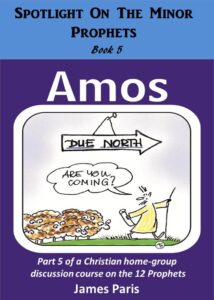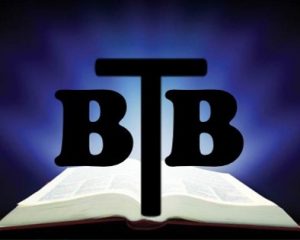Summary of the Minor Prophet Amos
Historical Setting:
The year is around 760-755 BC.
Israel is under the Kingship of Jeroboam 11 who died 753 BC.
Judah’s King at this time is Uzziah.
Amos is a contemporary of the prophet Hosea and so the social and religious problems that Hosea faced were the same.
 As with Hosea, Amos preached against the social and moral decline of Israel. The worship of Assyrian deities and the huge gulf that had emerged between the ‘haves’ and the ‘have not’s ’
As with Hosea, Amos preached against the social and moral decline of Israel. The worship of Assyrian deities and the huge gulf that had emerged between the ‘haves’ and the ‘have not’s ’
Assyria and Damascus had been at one another’s throats for some years now and so Israel was ‘allowed’ to prosper in a material sense. They had winter houses and summer houses, houses of Ivory (Amos 3:15). Houses of ‘hewn stone’ (5:11) and they reclined on “Beds of Ivory” (6:4)
They were “at ease in Zion” (6:1)
As in the book of Hosea “Religion” was prospering but Faith in the one true God YHWH was on the decline.
Along comes a farmer called Amos! Not one of the recognized prophets of Israel, nor was he a priest, not even a native of Israel but a farmer called of the Lord from Judah to warn the Northern Kingdom of the coming judgement.
Read Amos: 1:5 – 7:4-16
THE BOOK
What’s in a name? Amos means ‘Burden bearer’.
Main Theme Ch5:24 Justice and righteousness
In the first two chapters there are eight condemnations introduced by the words “ For three transgressions and for four” What’s that all about ?
This was to empathise that the Lord was entitled to judge Israel on the basis of not just three transgressions; but four. This pointed to the severity of the crime and the coming judgement.
Read Amos 1:3
Two or Three witnesses were required if a crime worthy of death was to be judged –

READ Deuteronomy 17:6
Four signifies the absolute completeness of the testimony. (The Lord is slow to anger, abounding in loving-kindness)
The message of Amos however is not only aimed at Israel and Judah but includes her immediate neighbours as we see from the ‘For the three transgressions and for four’ Damascus, Gaza, Tyre, Edom, Ammon and Moab are all included in the Judgement but special emphasis is upon Judah and Israel because they should have known better! – they knew God but rebelled.
As Hosea’s main theme was Israel’s Adultery against the Lord and therefore about broken relationship; the message of Amos was predominantly about Israel’s social corruption and moral decline.
Amos was an ‘unwelcome southerner’ as far as the priests of Israel were concerned and Amaziah rushed to report him to King Jeroboam hoping to get him kicked out of the country.
READ 7:10-17
Message of Hope
Amos ends with a message of hope. Read Amos 9:11-15
11 “In that day I will raise up the fallen booth of David,
And wall up its breaches;
I will also raise up its ruins
And rebuild it as in the days of old;
12 That they may possess the remnant of Edom
And all the nations who are called by My name,”
Declares the Lord who does this.
13 “Behold, days are coming,” declares the Lord,
“When the plowman will overtake the reaper
And the treader of grapes him who sows seed;
When the mountains will drip sweet wine
And all the hills will be dissolved.
14 “Also I will restore the captivity of My people Israel,
And they will rebuild the ruined cities and live in them;
They will also plant vineyards and drink their wine,
And make gardens and eat their fruit.
15 “I will also plant them on their land,
And they will not again be rooted out from their land
Which I have given them,”
Says the Lord your God.
- After a whole catalogue of denunciations from the prophet Amos, he comes up with 5 great promises to the people of Israel from the Lord Almighty. Theses promises are of great blessing and restoration for God’s people, put in the following terms.
• The re-building of Israel: After the separation of Israel following the death of King Solomon, and the subsequent capture and destruction of both nations. God now promises that the day will come when both nations will be restored again as one nation under his rule and the rule of the house of David. This happened in the days of Ezra and Nehemiah when the people returned from exile and re-built the city of Jerusalem.
• Victory over enemies: As we have seen the Edomites were old enemies of Israel, and took advantage of them whenever they could. The Lord promises there will come a day when they would have victory over their enemies.
• Abundance: There is to come a time of great abundance, when the grapes will grow faster than they can pick them. A time of great prosperity is near at hand.
• Security: A time of security when they can enjoy the fruits of their labours, instead of living in fear of their enemies.
• Lasting Inheritance: The final verse talks about a time when they will be gathered together as a nation, never again to be dispersed. Many would say that this occurred in 1948 when Israel again became a nation after being dispersed for almost 2,000 years. This was a momentous occasion and the first time in history that any peoples have ever been restored after such a long passage of time.
Applications for Today
Prosperity can be both a blessing and a curse, and the behaviour of the privileged in Israel emphasised this problem.
The ‘upper classes’ of Israel had never had it so good. They had second homes in the country, houses adorned with Ivory, Stone built houses with all the mod cons (a total luxury) slaves, concubines etc, they lacked for nothing and yet as the Lord had to point out through his servant Amos – they were Morally and Spiritually bankrupt.
This is a pattern that seems to apply to all the major world Empires or Kingdoms throughout history. Along with prosperity comes increasing corruption and lawlessness, eventually leading to their downfall.
Things have not changed today. Our western civilisation is by any standards of measure living in a time of great prosperity; and just as in the time of Amos it is very unevenly distributed; but this is exactly what Amos was ranting about – the rich get richer while the poor suffer.
Charity is hard to find and instead the wealthy are oppressing and taking advantage of the poor.
More and more the laws that God has set up are being ignored and instead the masses are persuaded to worship ‘mammon’ Wealth for Wealth’s sake and it doesn’t matter who you tread on to get it.
God wants us to prosper ( Psalm 1-3), yes; but at any cost?
The trouble with prosperity is that it is too easy to lose sight of the provider – as we look wide eyed at the provision !
We tend to really seek God when we need him to provide for our needs, but then when that provision is met and we are ‘comfortable’ do we still seek the presence of the Lord with as much gusto ?
Conclusion:
It is right and just to as the Lord to meet our every need whether it be Health, Wealth or even relationships, however we must be careful not to let the Provision take the place of the Provider.
And especially not to allow our prosperity to outweigh our charity!
It is all too easy when we are facing trials of whatever nature, to turn to God in desperate prayer. However when life is good and things are progressing well; it is just as easy to forget to pray at all.
The Christian life is all about keeping the correct balance between Worship and Wealth – or lack of it!
Question for the group:
When is your relationship, or worship time with the Lord at its strongest – when you’re in need, or when you have plenty.
LINK TO 12 MINOR PROPHETS SUMMARY
EXCERPT FROM THE 12 MINOR PROPHETS BOOK BY JAMES PARIS – COPYRIGHT APPLIES
